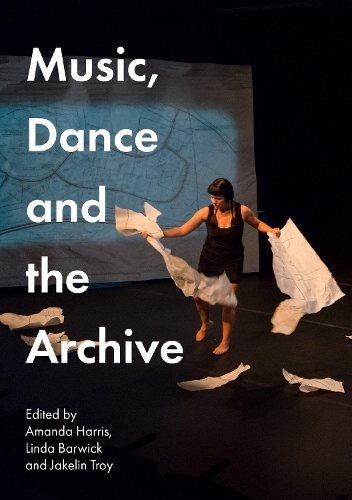
Music, Dance and the Archive
(Hardback)
Available Formats
Publishing Details
Music, Dance and the Archive
By (Author) Amanda Harris
Edited by Linda Barwick
Edited by Professor Jakelin Troy
Sydney University Press
Sydney University Press
1st December 2022
Australia
Classifications
Professional and Scholarly
Non Fiction
Australasian and Pacific history
Global or regional music styles
026.78
Physical Properties
Hardback
Width 178mm, Height 254mm
Description
Music, Dance and the Archive interrogates historical access and responses to archives by showing how Indigenous performing artists and community members, and academic researchers (Indigenous and non-Indigenous) are collaborating to bring life to objects that have been stored in archives.
It highlights the relationship between music and dance, as embodied forms of culture, and records in archives, bringing together interdisciplinary research from musicologists, dance historians, linguists, Indigenous Studies scholars and practitioners.
The volume examines how music and dance are recorded in audio-visual records, what uses are made of these records (in renewal of cultural practice or in revitalising performances that have fallen out of use), and the relationship between the live body and historical objects.
While this book focuses on Aboriginal and Torres Strait Islander music and dance, it also features research on Indigenous music and dance from beyond Australia, including New Zealand, Taiwan and North America.
Music, Dance and the Archive is an insightful culmination of original, previously unpublished research from a diverse selection of scholars in Indigenous history, musicology, linguistics, archival science and dance history.
Reviews
A radical and necessary intervention in our consideration of the archives and the records, and a particularly genius approach to bringing the archives to life This is the task for all of us - we must reanimate the archives, and this is the true decolonisation of the archives To have the Traditional Owners take these elements of cultural heritage and bring them back to life in their own cultures, reanimating them, re-embodying them, and re-emplacing them in Country This is the task liberating the archives, re-embodying the archives.
Professor Marcia Langton launching Music, Dance and the Archive, online, hosted by Indigenous Knowledge Institute, University of Melbourne, 1 December 2022
The case study descriptions of working with Aboriginal community members on traditional music are fascinating and encouraging examples of working inclusively and developing archival knowledge in co-operation with traditional owners.
The questioning and examination of past practices of custodianship, arrangement, and description contribute considerably to decolonising the archives.
Judges comments, 2022 Mander Jones Awards
Music, Dance, and the Archive offers new critical and innovative creative work with archival collections, and the book carries forward our understandings of historical materials into new fascinating directions.
Brian Diettrich, Yearbook for Traditional Music 55 (Special Issue 2)
A beautiful book that sings with energy and action, bringing to life those shadows of archived song, performance and collected cultural heritage of First Nations people around the world. Each contribution reveals with strength the aspects of performance, cultural maintenance and connection to culture beyond the fragments of the archive, but also notes the value in workshopping, responding and working with it. The practices described in detail in this collection of projects interrupt the record keeping of the archive, weaving past, present and future into connection and continuity. It is a truly inspiring read!
Tiffany Shellam, Aboriginal History 47
Author Bio
Amanda Harris is a Research Fellow on the ARC Discovery Project 'Reclaiming performance under Assimilation in southeast Australia, 193575'. She is a musicologist and cultural historian, whose work focuses on cross-cultural engagements, histories of music and dance, and women's histories.
Linda Barwick is a musicologist, specialising in the study of Australian Aboriginal music, immigrant music and the digital humanities, particularly archiving and repatriation of ethnographic field recordings as a site of interaction between researchers and cultural heritage communities.
Jakelin Troy is a Ngarigu woman from the Snowy Mountains of New South Wales, and Director of Aboriginal and Torres Strait Islander Research at the University of Sydney. Professor Troy's research and academic interests focus on documenting, describing and reviving Indigenous languages. She is also developing research projects with the Saraiki of the Punjab and Torwali community in Swat, North Pakistan.
